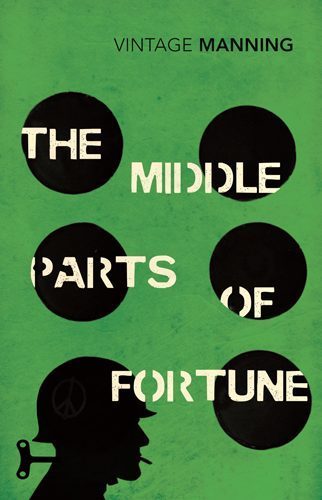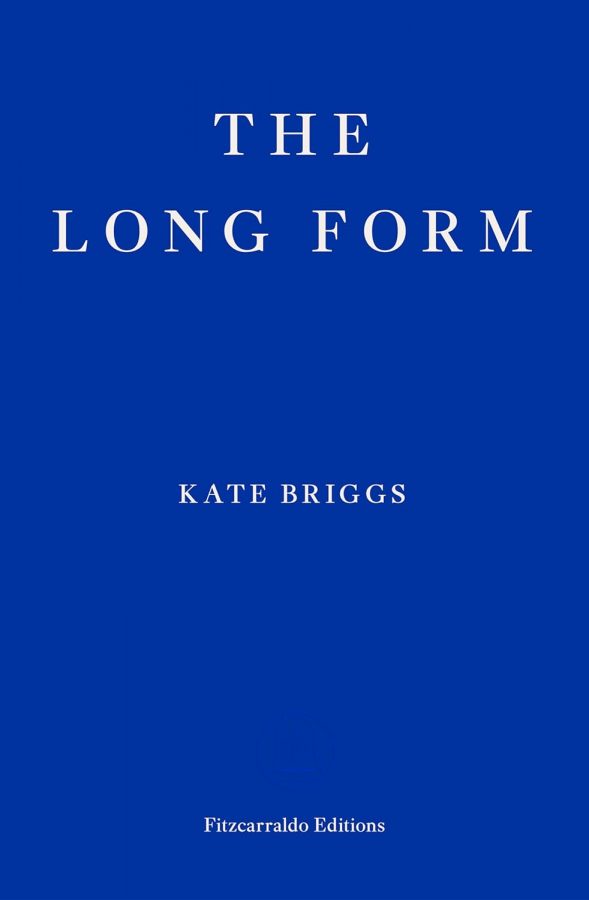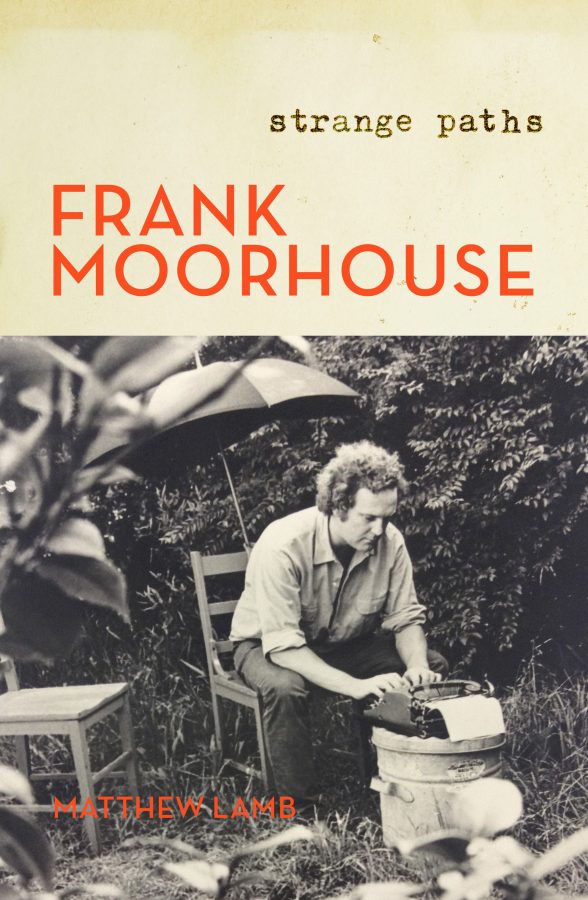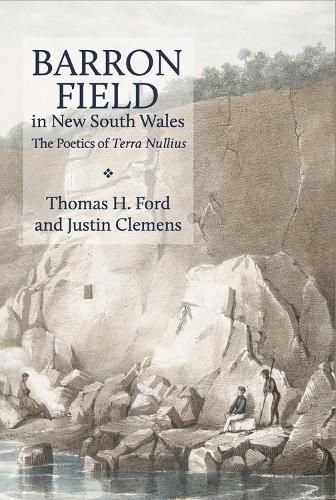The Somme, July 1916: like theatrical curtains, a blanket is pulled aside and an introverted soldier, Private Bourne, enters a dug-out. The eyes of all the men regard him: ‘Pitiless faces turned to see who it was as he entered, and after that flicker of interest relapsed into apathy and stupor again.’ Awaiting the order to enter battle, the infantrymen are weighed down with a sense of impending destiny, sitting ‘like men condemned to death’, and in ‘bitter resignation, with brooding enigmatic faces, hopeless, but undefeated’. All at once, they rush out of the dug-out into the night, a jittery file, like animals at an abattoir, and they are confronted with a world of both chaotic action and the faint, faraway promise of serenity:
Shells travelled overhead; they heard one or two bump fairly close, but they saw nothing except the sides of the trench, whitish with chalk in places, and the steel helmet and lifting swaying shoulders of the man in front, or the frantic up-lifted arms of shattered trees, and the sky with the clouds broken in places, through which opened the inaccessible peace of the stars.
This troubling scene comes at the beginning of The Middle Parts of Fortune (1929), the first world war novel by Australian-born writer Frederic Manning (1882-1935). A sense of atmosphere is conjured from the novel’s opening sentence, which evokes a sense of menace: ‘The darkness was increasing rapidly, as the whole sky had clouded, and threatened thunder.’ Immediately after this, we are thrown into the trenches with the main character Bourne, in the battle for the area of the Somme known as Trones Wood.
We first meet the amiable loner Bourne – about whom we will receive no backstory – as he moves through the hellish landscape: ‘The world seemed extraordinarily empty of men, though he knew the ground was alive with them.’ Before finding his assigned right dug-out in the trenches, Bourne enters an empty one and lights a candle. At this moment he is ‘indifferent to everything’, almost as if the war around him does not exist. As will remain typical of Bourne throughout the novel, his actions are calm and deliberative: ‘He would finish his cigarette, and then move on to find his company.’ In the seclusion of the empty dug-out, we are introduced to Bourne as both sensitive and phlegmatically self-contained, much as Manning himself was described by his friends in letters, and by his two biographers. Indeed, Manning modelled Bourne on himself, in particular the character’s reticence, erudition, and compassion.
The Middle Parts of Fortune draws upon the wartime experiences of Manning, who served as a private in the King’s Shropshire Light Infantry in 1916 and 1917. The son of prominent politician Sir William Manning, Frederic was born in Sydney to a well-to-do Irish family in 1882. At fifteen he emigrated to England to be privately educated by Arthur Galton, who introduced him to established literary figures such as Lionel Johnson and Matthew Arnold. Ambivalent about his home country and considering himself rootless (‘I am one of those who have no country’), he came back to Australia only twice (in 1925 and 1932) for short trips. England became his home primarily due to his unswerving aesthetic and cultural commitments. As Peter Morton states in his study of Australian expatriate writers Lusting for London, ‘England was the only place someone like Manning could have had a literary career of the kind he craved’.
Alcoholism, fastidiousness, and chronic illnesses would limit Manning’s literary output to three collections of poetry (The Vigil of Brunhild, 1907; Poems, 1910; Eidola, 1917), a commissioned biography of a ship designer in The Life of Sir William White (1923), a very well-received collection of short historical fictions in dialogue form, Scenes and Portraits (1909), and his war novel. Twelve years after his service, Manning wrote The Middle Parts of Fortune almost entirely from memory, over a few months of isolated, continuous writing in the house of his publisher Peter Davies in London. Davies took pages as soon as they came, to forestall Manning’s habit of constant revision. The final manuscript of The Middle Parts of Fortune is housed at the State Library of New South Wales.
The Middle Parts of Fortune was first published in 1929 in a limited edition (due to its frequent use of obscenities to render soldiers’ speech), and then the next year in a bowdlerised version called Her Privates We. The novel was immediately acclaimed, striking readers who had served in the war as being true to the actual experience of modern warfare. Ernest Hemingway, T. E. Lawrence, and T.S. Eliot named it the best English novel about the war. Sales were strong, even if dampened by coming at the tail end of a plethora of war books. Only in 1977, reverting back to Manning’s original title, was the unexpurgated version widely distributed.
Today, in spite of being re-printed by Text Publishing in 2012 and Vintage in 2014, and despite its ongoing reputation among critics and writers, The Middle Parts of Fortune remains more or less obscure in Australia. While Manning’s life has been documented in two fine biographies, Verna Coleman’s The Last Exquisite (1990), and Jonathan Marwil’s Frederic Manning: An Unfinished Life (1989), his work has not been the subject of a monograph.
Any study of Manning’s oeuvre must contend with the question of whether he can be considered an Australian writer. His peripheral status is, according to Marwil, the reason why Manning has been excluded from the corpus of twentieth-century Australian writers:
Frederic Manning had become an expatriate. Australians, who are always so quick to claim any writer or artist as Australian, even if he (or she) was born in another country, are equally quick to disown any Australian-born writer who has the temerity to leave Australia.
Even so, Laurie Hergenhan has argued that the writer gathered ‘strength and individuality from his ‘Australianism’ rather than finding it a limitation or embarrassment’, and incorporated a recognisably Australian egalitarianism in the viewpoint of Bourne, whose antipathy towards the army hierarchy is such that he dreams of sacking ‘the whole bloody institution from basement to garret’.
The Middle Parts of Fortune is a novel that enables us to understand the bodily, material, and phenomenological aspects of war. It belongs to the age of literary modernism, yet its language and style owed much to Manning’s classicist tastes, as exemplified by the embroidered yet restrained style of Scenes and Portraits. By 1929, this style had already waned under the rising dominance of the experimental modernist style and its focus on fragmentation. As David Malouf argues, Manning’s style is closer to ‘Kafka, Musil, Hermann Broch’ than to Forster or D.H. Lawrence. Malouf is correct that Manning shares few of the concerns with class and society of other English modernist writers, and more with the philosophical, phenomenological, and psychological explorations of the Europeans.
However, Manning explicitly rejected both Proust and Freud, and is much more in the lineage of his explicitly stated influences, the earnestly philosophical writers of late nineteenth-century Anglo-French aestheticism and belle-lettres, under the dominance of Walter Pater and including Matthew Arnold, William Morris, Anatole France and Ernst Renan. Renan’s influence on Manning’s early writing is clear, found in Manning’s style as well as the worldview of skeptical Epicureanism that predominates. A lapsed Catholic and former seminarian, Renan’s ironic style appealed greatly to Manning because while rejecting faith intellectually it retained an ardent sensitivity to the interior soul life. Manning, a reluctant atheist (or perhaps non-theist) responded to Renan’s agonizing over the quintessentially Victorian problem of religion and science. However, unlike Pater and Renan, Manning is concerned fundamentally with consciousness, perception, and experience.
The novel’s plot is minimal and pared-down. After the attack on Trones Wood, Private Bourne and his company are sent behind the lines to be refitted. Bourne spends a lot of time with his friends Shem and Martlow, is briefly given office duties in the orderly-room, and is offered a commission which he does not want to take. Most of the novel deals with the men’s exploits in trying to scrounge shaving water and alcohol, parading, telling stories, gambling, looking for women, and marching. At one point, Bourne, who is fluent in French, agrees to help compose letters for a Frenchwoman to her English lover. While the writing itself is ‘a somewhat mechanical business’, Bourne slowly comes to identify with the other man in an act of imagination. Like other discrete yet powerfully drawn moments, this affair is at once intimate, poignant, and uncomfortable. Part of the encounter’s thrill is an instinctive craving for life’s sensuality so near to death. Bourne desires the Frenchwoman, but is not impulsive enough to follow his wishes. He also feels for her lover because he identifies with others simply by habit. Empathy and desire comingle. The way in which Bourne’s motivations for this identification are opaque is typical of what Manning does with his main character: like the other soldiers, we see him through a ‘glass darkly’.
Things drag on. Finally, at the novel’s denouement, Bourne and the company enter battle once more.
Manning often stresses the way the men are shut upon themselves. Bourne’s isolation is thus only a more extreme and lofty example of a confinement which all the men endure. The novel’s final word is ‘secret’, and the final sentence encloses that secret inaccessibly within each man: ‘They sat there silently, each man keeping his own secret.’ Throughout, Manning uses the words ‘secret’ and ‘mystery’ many times, in disparate senses. The novel is not especially concerned with secrets as matters of intimate life, nor even of it in the Conradian sense of a pretence covering the true state of character. Manning’s secret is an indestructible element that is given or gifted, in distinction to all that can be destroyed by the war’s mechanistic logic of devastation. It is a reality that cannot be laid bare. In contrast to the bodily and mental life of the men, which Manning depicts as available for utilisation by the war machine in instrumental rational fashion, the secret inside is always-already withdrawn, beyond instrumentality. War, however, can make the ‘secret’ stand out and thus reveal something about human beings qua their very being. The ‘secret’ is therefore an ontological issue, and is connected by Manning to what he calls the ‘spiritual thing’:
They laid themselves down, as they were to get a few hours’ sleep; and Bourne, dropping off between the two of them, wondered what was the spiritual thing in them which lived and seemed even to grow stronger, in the midst of beastliness.
The secret persists – and implicates moral duties – even if the theological grand-narrative in which the notion of the soul was once enmeshed has collapsed.
They turned from the wreckage and misery of life to an empty heaven, and from an empty heaven to the silence of their own hearts. They had been brought to the last extremity of hope, and yet they put their hands on each other’s shoulders and said with a passionate conviction that it would be all right, though they had faith in nothing, but in themselves and in each other.
For Manning, there are moral communities and responsibilities brought about by facing death together. The men give to each other and are able to die for one another because, though they seem to believe in almost nothing, they have a determination ‘not to break’, sustained by drawing upon the secret thing from within. This creates a heroism that is neither social nor militaristic but existential: ‘The problem which confronted them all equally, though some were unable or unwilling to define it, did not concern death so much as the affirmation of their own will in the face of death.’ In its concerns with finitude, the absence of God, solitude, responsibility, boredom, and anxiety, The Middle Parts of Fortune is thus prescient of many concerns of the phenomenological and existential schools of twentieth-century philosophy:
they realized that each must go alone, and that each of them already was alone with himself, helping the others perhaps, but looking at them with strange eyes, while the world became unreal and empty, and they moved in a mystery, where no help was.
Therefore, although all the novel’s events take place at the Somme and Ancre from July to November 1916, the importance of these philosophical themes for Manning renders the war secondary as topos. War simply reveals more starkly than other situations this issue of the mystery of selfhood that Manning calls the ‘ultimate problem of all human life stated barely’. The decision to trace this problem, ignoring the socio-political context of the war and refusing standard novelistic conventions to fill out the main character’s backstory, is a rejection of the logic of empiricism and aesthetic realism.
The novel’s opening and closing mirror one another, with both containing the only battle sequences. The major deaths and most overtly dramatic elements come at the beginning and the end, with the chapters between following the men away from the front, while they are marching, training, talking, carousing or seeking women. This is a unique structure to a war novel. It resists our habitual expectations for the narrative to propel us through a series of dramatic events that end in some catharthic release. The tension between the banal minutiae of the soldiers’ lives with the extreme conditions of war is thus allowed to build without spectacle, and without release.
Most war texts use a mixture of spectacle and realism but the realism of Manning’s novel is strange. Even as it depicts goings on with extraordinary detail, the novel’s energy draws away from causal chains in the external world and moves inward towards awareness. This is jarring in a war novel, because expectations for social or martial heroism are predicated on character arcs. When the focus is instead the possibility of or quest for existential heroism, new formal arrangements foreground both the burden and potential of war to transform the inner aspect of human beings, to query freedom, will, and one’s relation to other beings. Another prominent example of this besides Manning’s novel is Terrence Malick’s 1999 adaptation of James Jones’ novel The Thin Red Line. Malick’s film provides no action sequences with clear military goals and does not mythologise the camaraderie of a gritty, masculine ‘band of brothers’, but instead makes its battles anti-climactic and gives us meandering surveys of the inner states of its characters, whose responses to their traumatic situation run between reductive, cynical pragmatism, and transcendentalist idealism.
The relationship between The Middle Parts of Fortune and his earlier collection Scenes and Portraits deserves more attention than it has hitherto received, as it is a key to understanding Manning as a writer. Scenes and Portraits seems dated today by some of its ornate Edwardian language, although the stories still read as inventive and bold. Its release made Manning a literary star drawing effusive praise from critics and writers such as Beerbohm, E.M. Forster, Ezra Pound, and T.E. Lawrence. In the preface, Manning proclaims that his stories explore the universal dialectic between ‘two religions … [that] of the humble folk, whose life is a daily communion with the natural forces and a bending to them; and the religion of men like Protagoras, Lucretius and Montaigne, a religion of doubt, of tolerance and agnosticism’. As with his war novel, these two ‘religions’ are examined in light of the essential loneliness, hardship, and fleetingness of human life.
Scenes and Portraits is comprised of six dialogues, each calibrated to balance cerebral disputation with the charm of the particular: a decadent, autocratic king of ancient Uruk (Iraq) is disturbed by the predictions of his incredulous high priest who walks upon the Garden of Eden and encounters Adam; Euripides is quizzed by Socrates at an Athenian dinner party as to the political theology of the playwright’s work; a Roman stoic, Serenus, debates the suicide of Seneca with two officers; Thomas Cromwell converses with Machiavelli on the political contestations between Church and State and the extent to which secularism will be realised in the future. The last dialogue is a discussion in the afterlife between Pope Leo XIII and Ernest Renan on social issues, especially the tendency of utopian political movements to lose track of their original values on coming to power.
The themes of the fifth dialogue, ‘The Jesters of the Lord’, are the most pertinent to The Middle Parts of Fortune. St Francis of Assisi, at Rome to petition the Church for permission to establish his new, visionary religious order, meets resistance in the form of worldly scepticism from the Pope, who protests that Francis’ aims are unrealisable because they are ‘too severe’, and such ‘an ideal beyond all human strength’ will surely end in failure as the initial zeal and momentum wears off. Nonetheless, the monk from Assisi convinces and goes home with a mandate for the Franciscan order. On the way home he and his fellows collapse from heat, and nearly perish until a passing wine-seller saves them with his products. The stranger calls them ‘twelve fools’ for walking in the hot sun, and Francis agrees, responding:
We are fools for Christ’s sake. Yea, we are the fools of God, and by our folly seek to draw men toward him. But thy kindliness and mercy shown to us, my brother, is a good deed, which like a seed thrown in the ground shall flourish and bear fruit.
Francis and his men see their savior as an angel. The wine-seller, upon going home, repeats his assertion that the mendicants were fools to his wife. The pragmatic, mundane perspective of the Pope and the wine-seller are given power to blemish and disturb Francis’ spiritual ideals, yet not to demolish or deconstruct them. As a type of ‘second Christ’, Francis recapitulates the original Christian message of an alternate order or sphere of spiritual values which is ‘not of the world’ and which escapes all attempts at reduction to pragmatism, for no-one ‘can serve two masters’. In Manning’s novel, the archetype of the ‘holy fool’ is fulfilled in different ways by the stubborn Bourne and by the grotesque figure of ‘Weeper’ Smart.
Bourne is described early on as having a ‘malicious imp’ in his mind. His foolishness is of a reserved and unobtrusive kind, and meshes well with an Odyssean cunning and adaptiveness that gives him the potential to advance up the army hierarchy. Yet the ‘foolish mirth’ he is described as having inures him to all of the narratives and mystifications upon which the army power structure relies, and makes him fundamentally unable to think in instrumental terms. Hence, his constant rejection of promotions, his conclusion that the army has ‘too much bloody discipline’, and his comparisons of the infantry to the anti-materialistic ascetic life of philosophers and saints:
Life was a hazard enveloped in mystery, and war quickened the sense of both in men: the soldier also, as well as the saint, might write his tractate de contemptu mundi, and differ from him only in the angle and spirit from which he surveyed the same bleak reality.
The character of ‘Weeper’ Smart enters events halfway through the novel and assumes increasing importance until he comes to have a central place in the novel’s conclusion. He is described as a ‘forlorn, ungainly creature’ who is sullen and pathetic, gangly with ‘the clumsy agility of one of the greater apes’, suggestive of a ‘vulture’. He does not even inspire pathos in the other men:
It would have been the face of an imbecile, but for the expression of unmitigated misery in it, or it would have been a tragic face if it had possessed any element of nobility; but it was merely abject, a mask of passive suffering, at once pitiful and repulsive.
It is through the repeated iterations of these unkind descriptions that Smart’s gallant actions at the novel’s denouement achieve great intensity and poignancy. Smart has nothing that marks him as honourable from a social or military perspective: he is there, begrudgingly against his will. Yet when tested in battle he does not hesitate and gives everything for a fellow man.
Both Smart and Bourne share something of Shakespeare’s fools, who according to Stanley Wells are ‘mostly wise […] they hover on the edge of the play’s action, enabled by their classlessness to move easily between the high and low characters’. This describes Bourne’s nature as a go-between, a kind of instantiation of negative capability in his lack of strongly fixed pre-suppositions, easily moving between the world of officers, non-commissioned officers, and privates. Bourne is as undazzled by the power of the officers and he is unwilling to condescend his fellow privates, despite the fact that he is set apart from them by his education, station, and consciousness.
Between Scenes and Portraits and The Middle Parts of Fortune, there is a continuity of a philosophical mode of writing, a probing style that uses dialectic and character tensions to examine questions around will, fate, choice, suffering, and courage. Possibly, some of this came from the years Manning spent reading Plato and the Epicurean tradition, as well as the literary philosophy of Lucretius, Horace, and Cicero. The discontinuities between the two works, much remarked upon at the time of the latter book’s publication, are harder to find and account for. There is a noticeable change in style and language, with the ornate Paterian diction of Scenes and Portraits giving way to leaner, more direct language in the war novel, with almost none of what could uncharitably be described as the former’s affected qualities. There is another obvious change, from a tightly choreographed dialogic form to an expansive Shakespearean-style dramaturgy that features a large cast of characters, each of whom is well fleshed out.
In The Middle Parts of Fortune there is a counterbalancing of ancient and Shakespearean dramatic form with the interiorised, contemplative questioning typical of the modern novel. The result is that equal attention is given to both external and internal worlds, between that which belongs to the order of nature – death, will, competition, and (in Manning’s view) war – with that which belongs to another order entirely – heroic courage, self-abnegating compassion, and the unsayable ‘spiritual thing’. This alternate order is metaphysical, akin to Christian grace (despite Manning’s awareness of the death-of-God). It is the order of everything not inscribed or foreclosed by the technocratic, mechanistic logic of the army and industrial warfare, all that attests to radical, non-quantifiable alterity either ‘out there’ or within beings. It is the last remaining source of anything approaching salvation for the men.
Through understanding this non-orthodox vision of grace amidst the terrors meted out to men by an ‘impersonal and incalculable force’, we come to the most important difference between Manning’s two major works. These are two interrelated dichotomies that, while they are present as topoi in Scenes and Portraits, come to govern the entire structure of the war novel. The first is the dichotomy between the Greek tragic worldview and the Christian redemption story. The second is the dichotomy between a means-oriented pragmatic worldview and a worldview governed by ideals which are intrinsically ‘good’ in-themselves.
In Greek tragedy, there is no atonement through suffering, no salvation worth hoping for: ‘disbelief in redemption’, writes political theorist J. Peter Euben, ‘is one of the defining aspects of Greek tragedy’. In the Greek tragic tradition, disaster strikes, and because its causes are finally inexplicable, the suffering unleashed cannot be averted, managed or lessened by piety, goodness, or social justice. An enigmatic malevolence of this Greek tragic kind is attested to frequently throughout Manning’s novel:
The darkness seemed to him to be filled with the shudderings of tormented flesh, as though something diabolically evil probed curiously to find a quick sensitive nerve and wring from it a reluctant cry of pain.
Courage and self-overcoming in a chaotically cruel universe are further signs of the influence of Hellenistic philosophies concerned with practical wisdom and flourishing (eudamonia) on the novel. Manning – who wrote a detailed introduction to a 1926 edition of Epicurus’s Morals by 17th century English moralist Walter Charleton – adopted Epicurus’ view that we have nothing to fear from dying because ‘when we exist, death is not yet present, and when death is present, then we do not exist’. When we first meet Bourne in the opening pages, there is a dead soldier, who is called by the narrator a ‘piece of wreckage’. This description, as well as showing the Epicurean influence, exemplifies Manning’s preference for language that is clinical yet has tones of emotional intensity. The phrase is odd and seems to hide a grievance that is held back. It demonstrates the Epicurean view of the body as an empty shell. However, it will also set up a major question when the heroic act at the novel’s end occurs. The novel concludes with a body being dragged from the action on the front back to the trenches, at great risk. Why? If a dead body is a mere thing of no value, why risk one’s life to give it dignity? What do the living owe the dead? Epicureanism is unable to answer that particular question.
Within the novel’s world, Stoic and Epicurean strategies toward the development of imperturbability or equanimity (ataraxia) amid enormous hardship are available to reflective, educated men such as Bourne, who carries ‘a text of Horace with Conington’s translation in his pocket’. For the formally uneducated infantrymen in Bourne’s company, the work of adapting, of getting on with it, is habitual and instinctual, carried over to war from harsh working class lives. There is some awareness on Manning’s part, however, that this mentality of ‘not breaking’, in preventing the breakdown of the army’s operations, simultaneously allows the war to continually reproduce its iniquitous terrors, discarding exhausted men and turning to fresh reserves. Here is the unique subtlety of Manning’s take on the war, which cannot be called a standard anti-war position. Manning makes no moral argument against war, but presents it as a given, calling it ‘a particularly human activity’ in his prefatory note and ‘one of the blind forces of nature’ later on. In doing so, he de facto denies the political logic of war and the political economy of war-making, a position which must be considered erroneous. Nonetheless, there is a constant critique of the mechanistic reduction of men to quantified units, where they are ‘de-worlded’, and stripped of their inward qualities and rich histories.
If each human being is a world, and each world is intrinsically good, it is not enough to simply endure. The war inscribes men with an instrumental value: this is its logic. But there must be some value to each man on the front that contests the order of instrumentality. What is that intrinsic value, where is it found? The something else at work besides the whims of fate and the seeming death or absence of God, is the secret, the spiritual thing. Its ontological significance is beyond a simple life-force, and appears capable of some kind of redemption. Two important references to Christ strengthen the connections between the secret and Christ:
They marched out of the village, past the stone calvary at the end of it, and men who had known all the sins of the world lifted, to the agony of the figure on the cross, eyes that had probed and understood the mystery of suffering.
Bourne chanced to see over the door a red strip on which was printed in white letters: “AND UNDERNEATH ARE THE EVERLASTING ARMS.” It struck him with an extraordinary vividness, that bare text sprawling across the wall above the clamour of those excited voices; and once again he knew that feeling of certitude in a peace so profound, that all the turmoil of the earth was lost in it.
These references are as direct as the novel will be toward the possibility that the ‘secret’ is anything divine or sanctified. Nonetheless, the strength of the language makes explicit what is only implied elsewhere, in the actions and stances of the men towards each other. In Bourne’s benevolent love for the schoolboy Martlow and Smart’s selfless fidelity to Bourne we see a love at work akin to the Greco-Christian concept of agape. Here we can also find a luminous heroism ennobled beyond passions and mere survival and elevated to the plane of the transcendent.
Related to these intimations of Christian compassion is the other dichotomy between pragmatism and idealism. The existential heroism displayed by the men is never made much of rhetorically, either by Manning’s narrator or any of the privates, who are cynical and wary of grand oratory, ‘disillusioned from an unsympathetic world’. Bourne himself, often a cynical or hard-headed operator, is described as having a ‘jaded soul’ with ‘a very definite prejudice’ against the officers for whom he temporarily works as a secretary and typist. Bourne’s fellow privates agree: ‘they don’t care a fuck ‘ow us’ns live’ is Martlow’s bitter synopsis. The rank-and-file resist the rhetoric of ideals because they see it as made up of, in Bourne’s words, ‘solemn empty phrases’. Manning’s narrator attributes this anti-idealism to the war’s industrialised logic, which have ‘tested and wrecked already so many conventions.’ One of these is honour, which Bourne has seen become ‘a fugitive and cloistered thing’, an ideal which has lost its purchase and normative meaning partly because of the obvious cowardice of the officer class and partly because the army itself has gone from being ‘a class or profession’ in earlier periods to ‘a world’. Hitherto driven by ideals of a dedicated warrior caste, industrialised war and conscription have swelled the army with disaffected working and middle class men whose values are predicated on the pragmatic worlds of labour and mercantilism, a ‘practical and more selfish view’ concerned with self-preservation:
They could be generous and accept additional burdens without complaint, if there were real need; but in moments of bitterness it seemed to them that duty and honour were merely the pretexts on which they were being deprived of their most elementary rights.
Here Manning draws from the Shakespearean world of war, which involved a critique of noble and aristocratic ideals – their hollowness, imprudence, and deceptiveness. Through Bourne’s sardonic eyes we see a Shakespearean world of destruction and acquisitiveness: as the privates try to save their skin, the officers are busy playing to get ahead. Bourne is just one of the few pragmatists among the privates who in heightened instants reclaims the world of ideals such as contemplation, honour, fellow-feeling, and courage. In so doing, Bourne and the privates distinguish themselves through their experiences and ordeals from the ‘civvies’ and ‘brass hats’. The displays of generosity and community that develop between many of the men is itself a kind of nobility and dignity. Martlow, ‘the kid’, foulmouthed and crude, is one of those privates to whom Bourne is referring when he points to a kind of ‘aristocracy of the soul’ achieved when men master their appetites and vices ‘with rather a splendid indifference’.
Once again it is Smart, the ‘uncouth figure’ with a ‘melancholy, half-imbecile face’, who reveals Manning’s concerns by becoming an ‘instrument of justice’ and of fearless gallantry, thus instantiating the pragmatism-idealism dichotomy. The dichotomy also features poetically in the distinction between the earth and the sky. When Bourne stares out before him laterally, he sees a panorama of wreckage, like a ‘sterile landscape in the moon, or some soulless region on the shadowy confines of hell’. When in multiple instances he raises his eyes to the firmament, another order of things is suggested that overwhelms Bourne with its majesty:
As Bourne turned back with the others, he looked up to a clear patch of sky, and saw the sharp crescent of the moon, floating there like a boat. A bough threw a mesh of fine twigs over its silver, and at that loveliness he caught up his breath, almost in a sob.
Before he wrote his masterpiece, Manning was told by his teacher, Arthur Galton: ‘What we need now is not a romantic Wordsworth, but an austere classic.’ Manning delivered just such an exacting and solemn work. The austere Greek tragic view infused throughout gives us a picture of men who are fate’s victims, ‘so toy-like, so trivial and ineffective when opposed to that overwhelming wrath’. In The Middle Parts of Fortune, Manning extended the technique of dialectic he used in Scenes and Portraits beyond intellectual speculation. The novel counterbalances its contrasting worldviews tightly and with maximum tension, but delicately and plausibly so, without making any of its characters mere mouthpieces for points of view. It also gives us a fleeting view, as if through breaking clouds, of a spiritual promise and a love that the forlorn, desolating inferno of war cannot ever remove or conquer.







